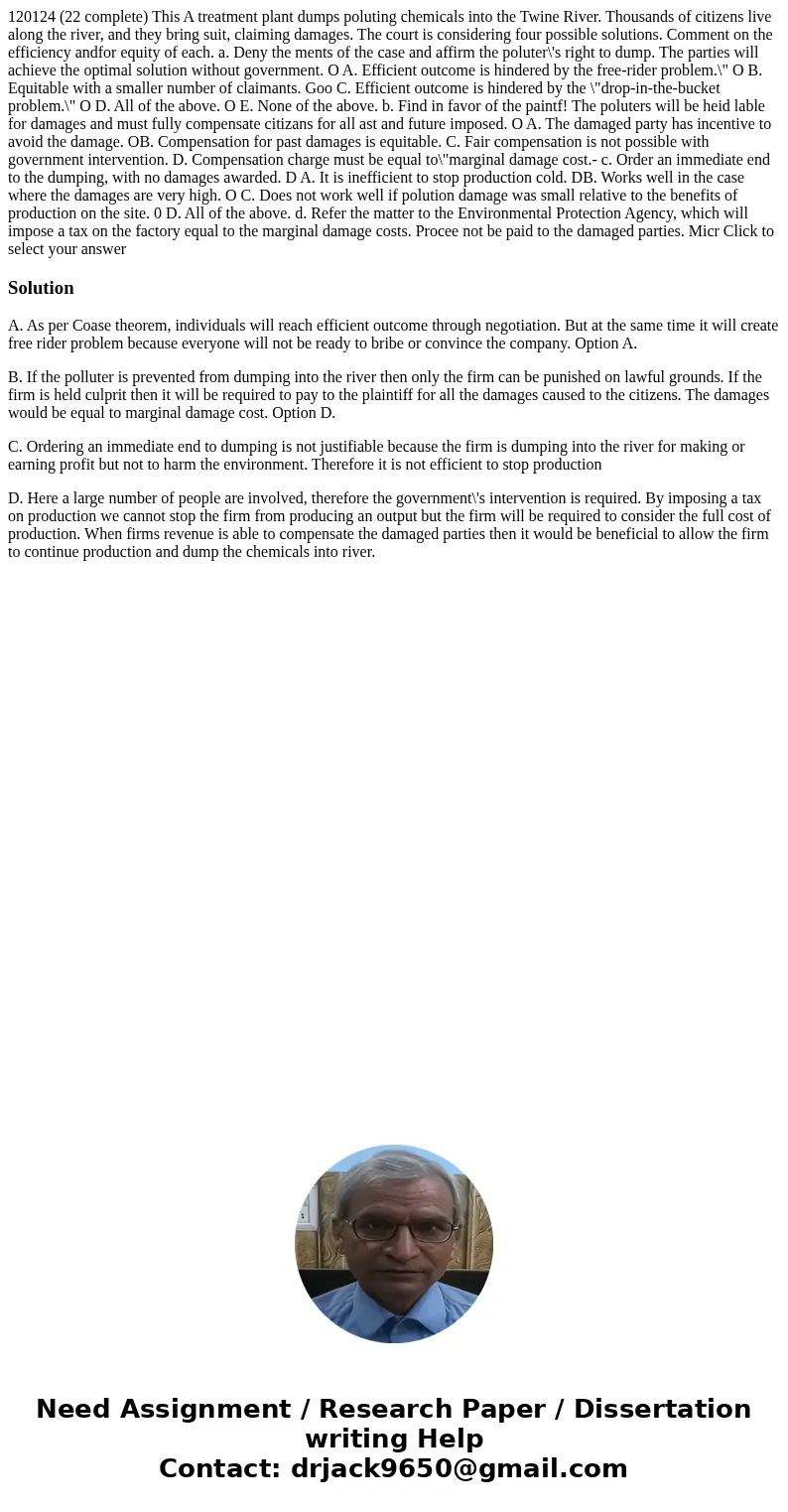120124 (22 complete) This A treatment plant dumps poluting chemicals into the Twine River. Thousands of citizens live along the river, and they bring suit, claiming damages. The court is considering four possible solutions. Comment on the efficiency andfor equity of each. a. Deny the ments of the case and affirm the poluter\'s right to dump. The parties will achieve the optimal solution without government. O A. Efficient outcome is hindered by the free-rider problem.\" O B. Equitable with a smaller number of claimants. Goo C. Efficient outcome is hindered by the \"drop-in-the-bucket problem.\" O D. All of the above. O E. None of the above. b. Find in favor of the paintf! The poluters will be heid lable for damages and must fully compensate citizans for all ast and future imposed. O A. The damaged party has incentive to avoid the damage. OB. Compensation for past damages is equitable. C. Fair compensation is not possible with government intervention. D. Compensation charge must be equal to\"marginal damage cost.- c. Order an immediate end to the dumping, with no damages awarded. D A. It is inefficient to stop production cold. DB. Works well in the case where the damages are very high. O C. Does not work well if polution damage was small relative to the benefits of production on the site. 0 D. All of the above. d. Refer the matter to the Environmental Protection Agency, which will impose a tax on the factory equal to the marginal damage costs. Procee not be paid to the damaged parties. Micr Click to select your answer
A. As per Coase theorem, individuals will reach efficient outcome through negotiation. But at the same time it will create free rider problem because everyone will not be ready to bribe or convince the company. Option A.
B. If the polluter is prevented from dumping into the river then only the firm can be punished on lawful grounds. If the firm is held culprit then it will be required to pay to the plaintiff for all the damages caused to the citizens. The damages would be equal to marginal damage cost. Option D.
C. Ordering an immediate end to dumping is not justifiable because the firm is dumping into the river for making or earning profit but not to harm the environment. Therefore it is not efficient to stop production
D. Here a large number of people are involved, therefore the government\'s intervention is required. By imposing a tax on production we cannot stop the firm from producing an output but the firm will be required to consider the full cost of production. When firms revenue is able to compensate the damaged parties then it would be beneficial to allow the firm to continue production and dump the chemicals into river.

 Homework Sourse
Homework Sourse